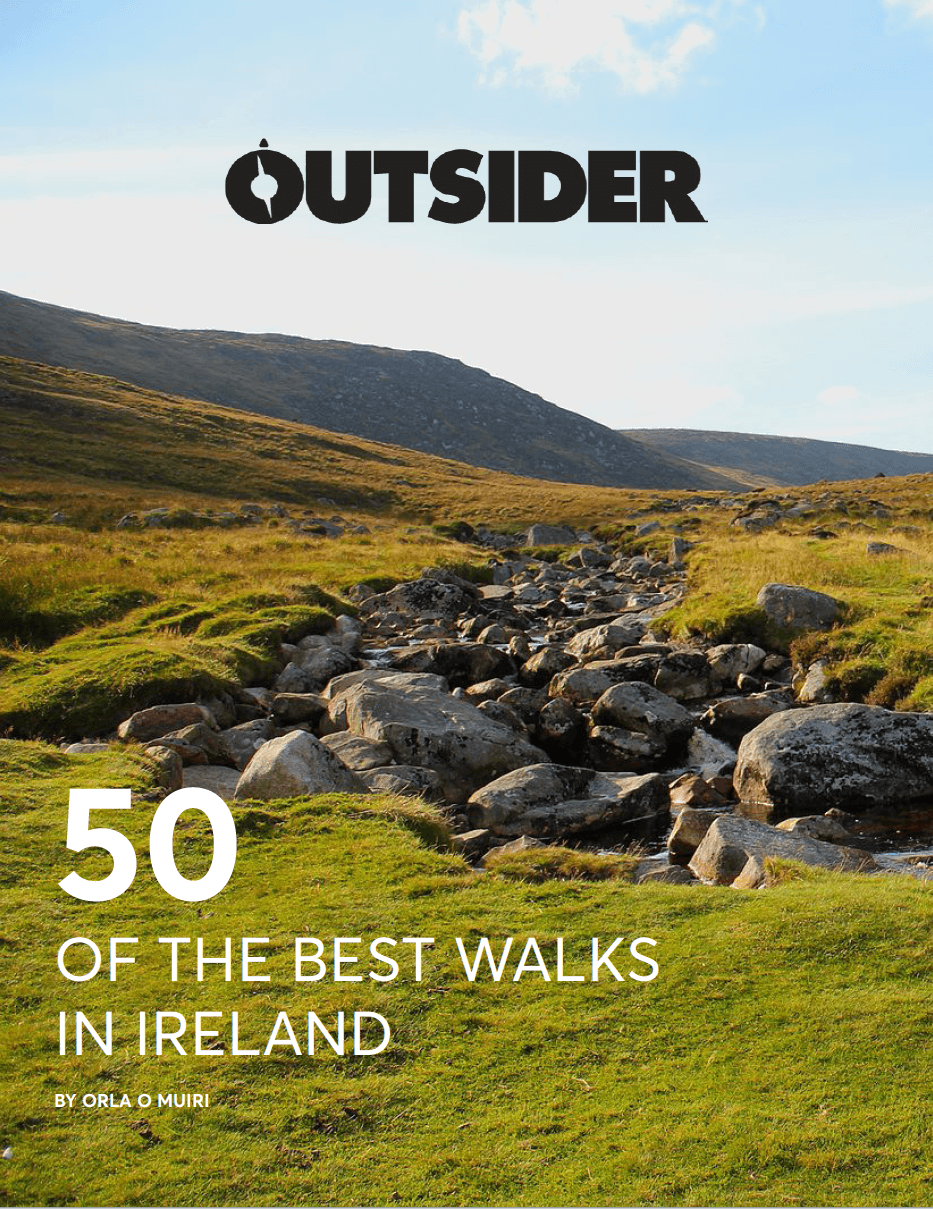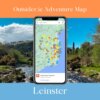Whether you’re starting a new training plan in the New Year or have an expedition lined up, it’s important to make sure that your body is getting the right fuel. Here is our guide to the best and worst foods for fuel!
8 Fulfilling Foods to Keep You Going
The key is getting enough proteins and slow releasing carbs that will keep you feeling full and provide you with the energy you need to keep active throughout the day.
Note – if you’re keeping active you should never feel hungry! Your body will just break down your muscles in a desperate grab for energy. Make sure you eat something immediately after training or eat whenever you feel hungry on a long hike.
1. Oats
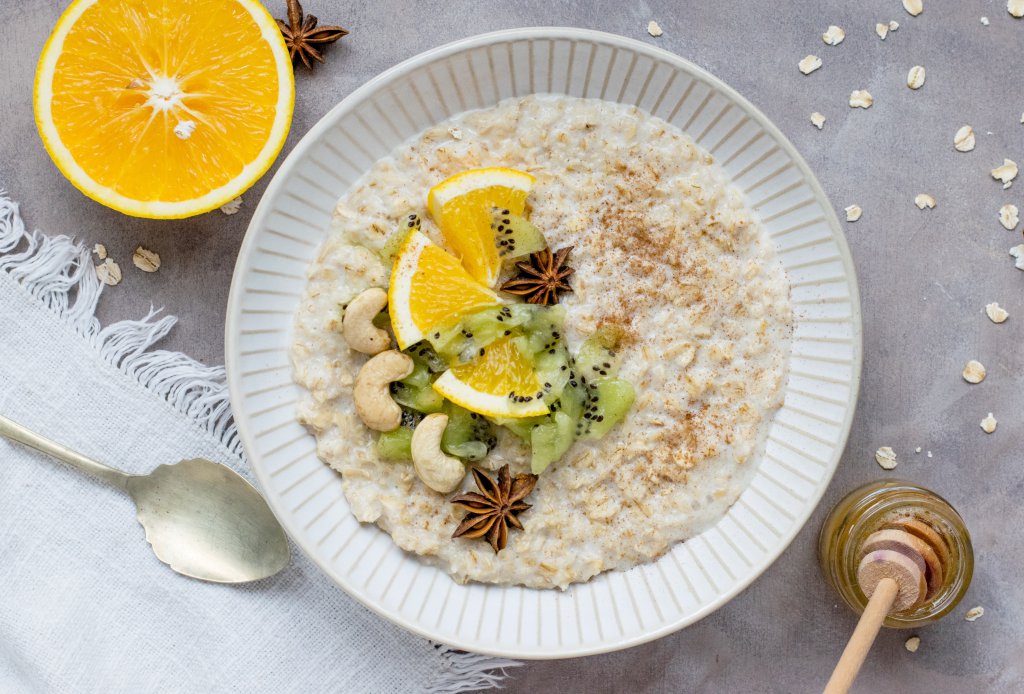
The ultimate energy food. Oats are one of the best sources of slow-releasing energy and will set you up for the day ahead, no matter what you are tackling. They are also a great source of B-vitamins which are important for converting carbohydrates into energy for our cells.
If you want to add more interest to your daily bowl try some of these recipes:
- Tropical summer coconut oatmeal
- Creamy oatmeal with raspberries, seeds and honey
- Banana and blueberry porridge
Find porridge difficult to stomach?
You can also get your oat fix by opting for sugar-free granola and natural granola bars.
2. Bananas
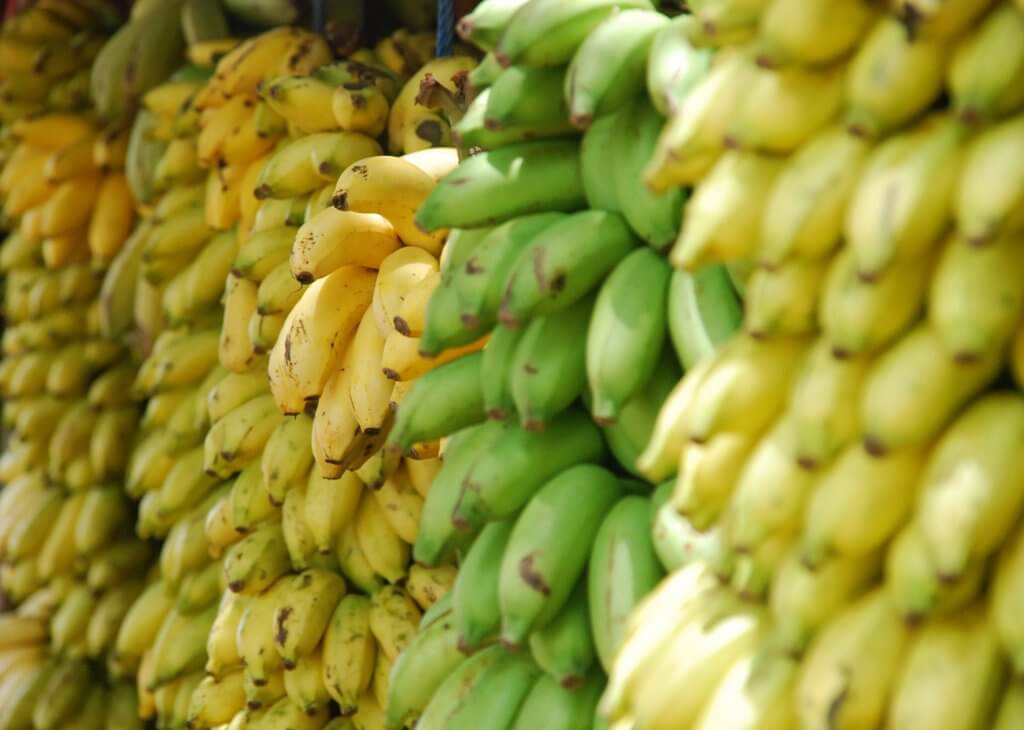
The humble banana. Packed with electrolyte potassium, bananas are another slow release superfood. You’ll get that energy kick you need without the horrible crash that comes with other fast sugar.
Give your bananas a boost with these recipes:
- Oven baked cinnamon-pecan almond butter banana boats
- Spicy kiwi banana smoothie
- Instant strawberry banana frozen yoghurt
In fact, fruits, in general, are a really good source of carbohydrate. Apples and peaches are particularly good pre-exercise options that will increase your performance.
A packet of dried fruit is a great option for when you’re on the go and have limited space in your day rucksack!
3. Greek yoghurt
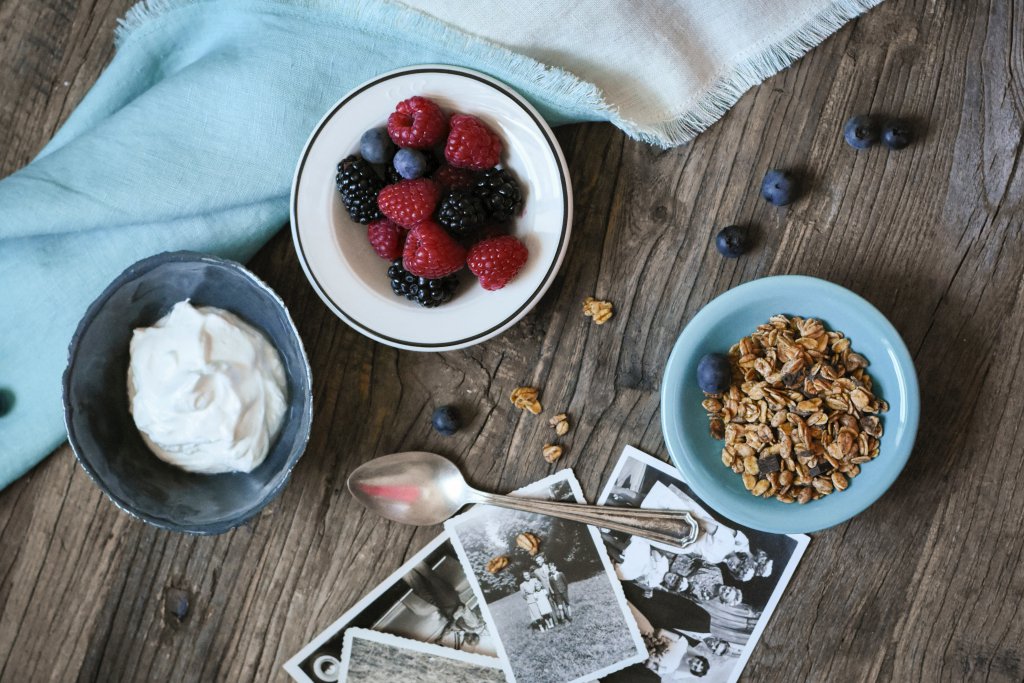
Greek yoghurt is full of protein, the secret to staying fuller for longer. We recommend sticking to the Greek stuff as it’s higher in protein and lower in sugar and sodium than other yoghurts.
What’s more, it’s utterly delicious. It makes a great snack or dessert substitute.
6. Nuts
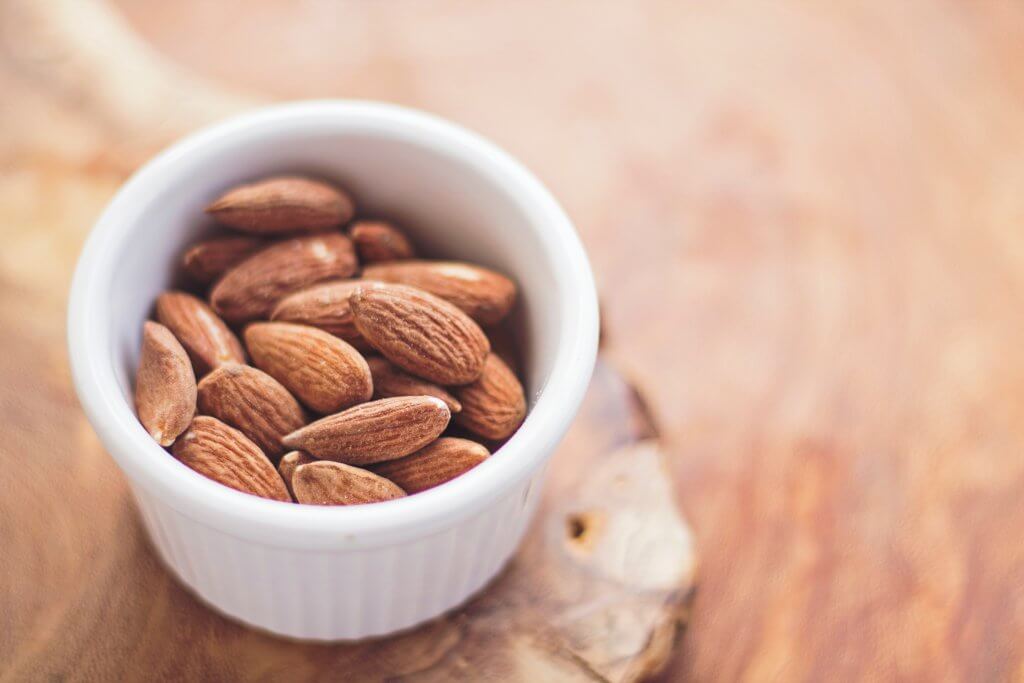
Owing to their high content of healthy fats, nuts are sure to keep you feeling satisfied instead of grazing all day. Fat in your diet can even help you burn some of your excess fat. Although this does make nuts high in calories so avoid having very large portions.
And it’s not just those healthy fats that will do us some good. Nuts are packed with protein, as well as other minerals such as magnesium, calcium, phosphorus, potassium. This will help to build muscle strength and maintain healthy bones, just what you need to tackle those adventures!
Top tip: to increase the nutrient value of your nuts even more and make them easier to digest, soak nuts in water overnight to ‘activate’ them.
There are many ways to enjoy eating nuts:
- Nut mixes – unsalted or salted depending on how much salt you lose in your sweat – are great for snacking, or sprinkling on top of your morning cereal, salads and other dishes. Nuts roasted in oil, or have added sugar, are ones to avoid.
- Nut butters – another great snack to keep those hunger pangs at bay is nut butter on brown toast, or with a piece of fruit. Just avoid highly processed nut butters, and stick to raw, ground, or dry-roasted nut butters (check the label to make sure you’re just getting nuts rather than fillers and preservatives).
Here are some recipe ideas to get you started:
5. Wholegrains
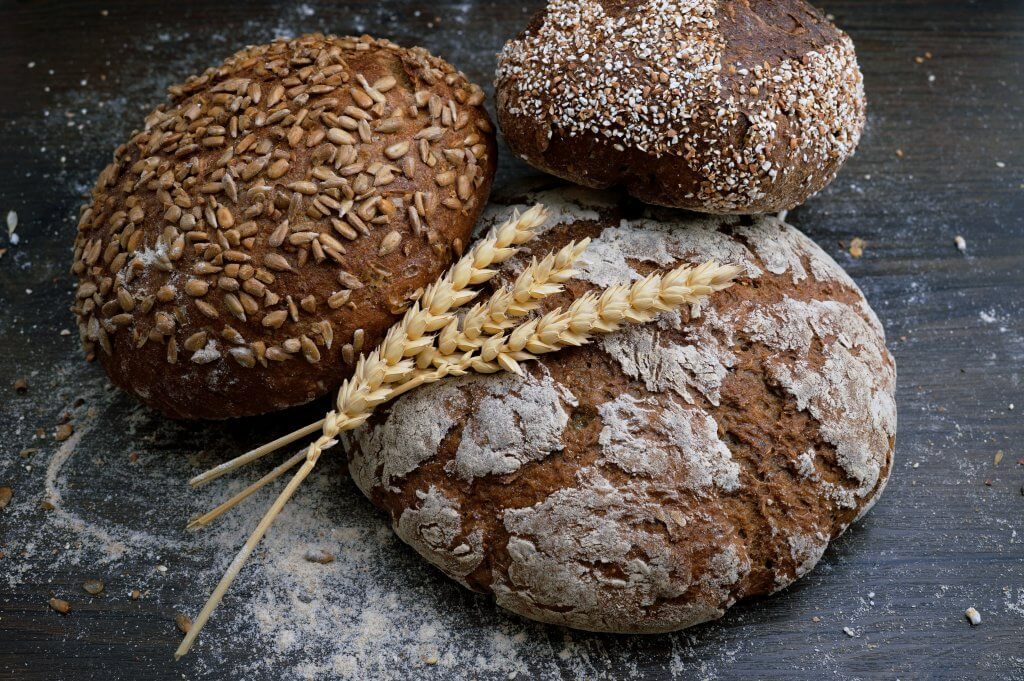
When it comes to fuel for your body, you really can’t beat some good old carbs. However, keep em’ wholegrain (brown). White grains have been stripped of the naturally-occurring nutrients like fibre, iron, and B-vitamins that your body needs. Moreover, brown carbs are slower release so this will keep you going longer. Brown rice and wholegrain wheat are great for this. And don’t be afraid to branch out further – try farro, quinoa, spelt and kamut as well.
When it comes to pairing your grains with other things try to opt for vegetables and lean meats rather than heavy cream based sauces. These foods will give you the nutrients you need, and won’t weigh you down when you’re exercising. Save the fattier foods for the recovery period.
Here are some recipe ideas to get you started:
- Whole wheat pasta with edamame and rocket
- Sicilian-style cauliflower with whole wheat pasta
- Herbed farro pilaf
6. Lean Meat
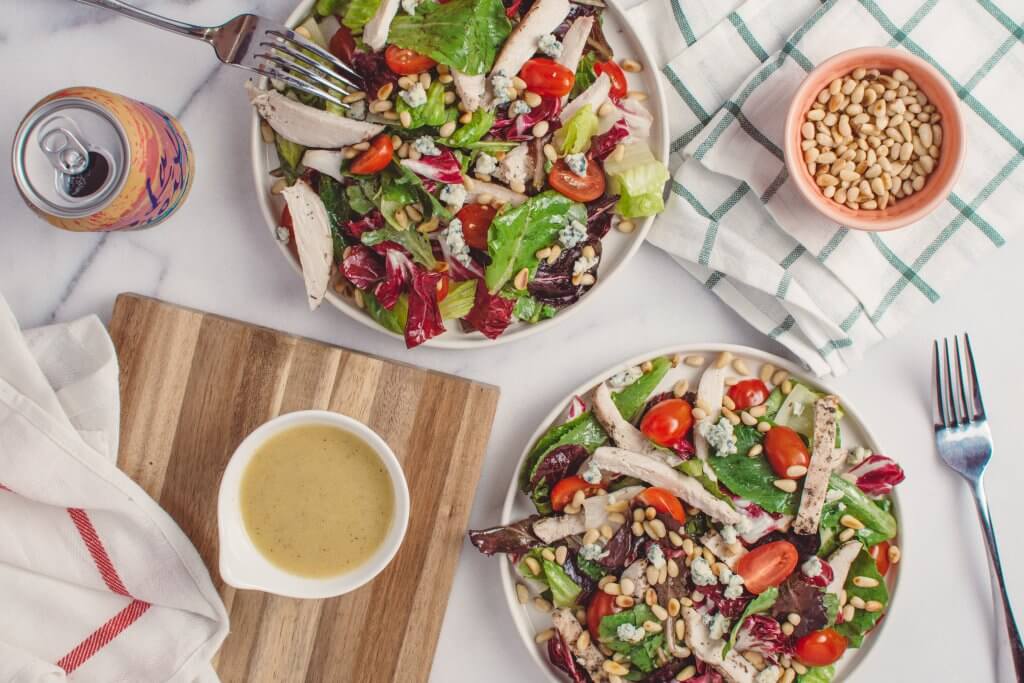
Full of protein, lean meats like chicken, turkey or fish will keep you feeling fuller for longer. Protein helps to repair and build muscles so is especially important for anyone with an upcoming race or expedition.
Here are some recipe ideas to get you started:
- Lemon chilli chicken fajitas
- Spiced roast chicken with quinoa tabbouleh
- Chilean sea bass with spinach-avocado pesto
7. Eggs
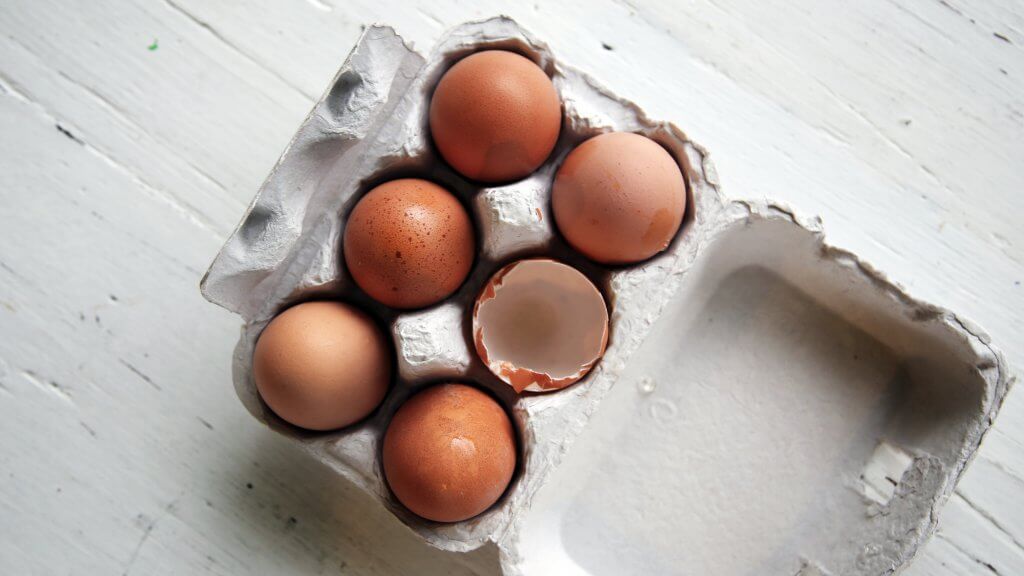
Eggs, like meat, are full of protein and are a great option for vegetarians looking to get their protein hit. Pair them with a carbohydrate like toast in the morning to really set you up for the day, with no need to snack later.
Here are some recipe ideas to get you started:
8. Vegetables
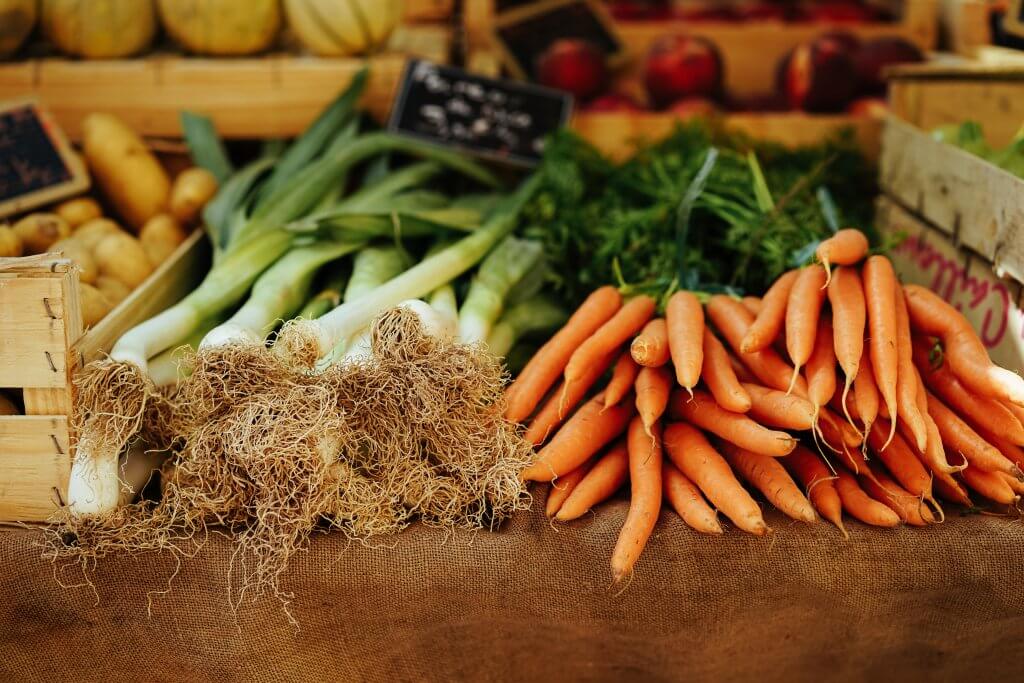
One often overlooked option for keeping full are vegetables. Vegetables actually contain a large number of complex carbohydrates which provide slow release energy for your body throughout the day. Plus they also contain other vitamins and minerals you might miss from just grains alone.
Really good choices are sweet potatoes (full of iron, magnesium and vitamin C) and carrots (vitamin A and potassium).
Here are some recipe ideas to get you started:
- Roasted sweet potato and carrot soup
- Sweet potato, chickpea, and spinach curry
- Baked carrot and nigella seed bhajis
4 Foods to Avoid
1. Sugary snacks
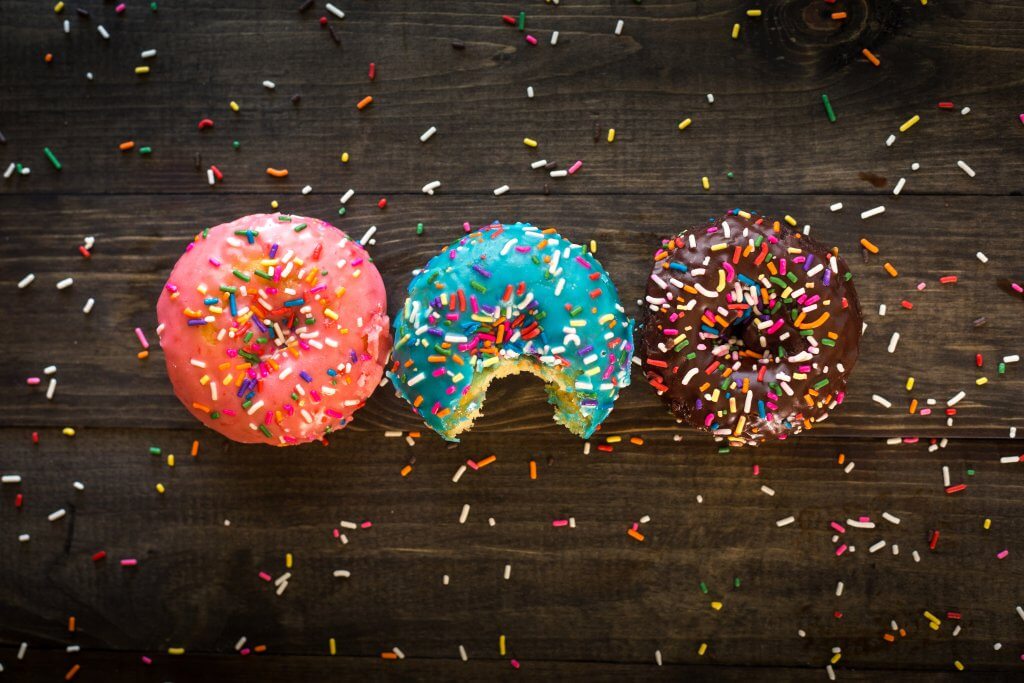
Sweets like cakes, biscuits, and chocolate might give you an energy boost in the short term but will inevitably lead to a sugar crash leaving you feeling tired and reaching for another snack.
If you need to snack between meals try to opt for complex carbs like a piece of fruit, carrots and hummus, or a piece of wholegrain toast, which will give you slower release energy.
2. Creamy food before exercise
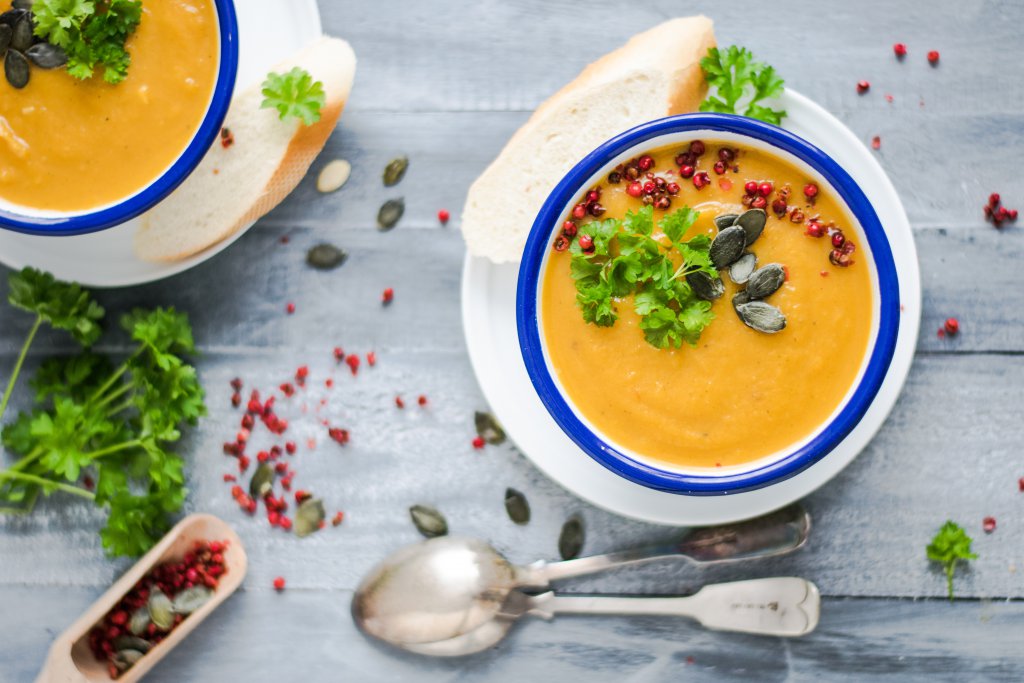
Creamy foods like creamed sauces and soups divert a large percentage of blood flow to your stomach and away from your heart, lungs and muscles, and will reduce your performance and cause cramps. Avoid these heavy sauces before a run or hike.
There are plenty of other lighter soups and sauces out there so opt for those instead!
3. Low-fat substitutes
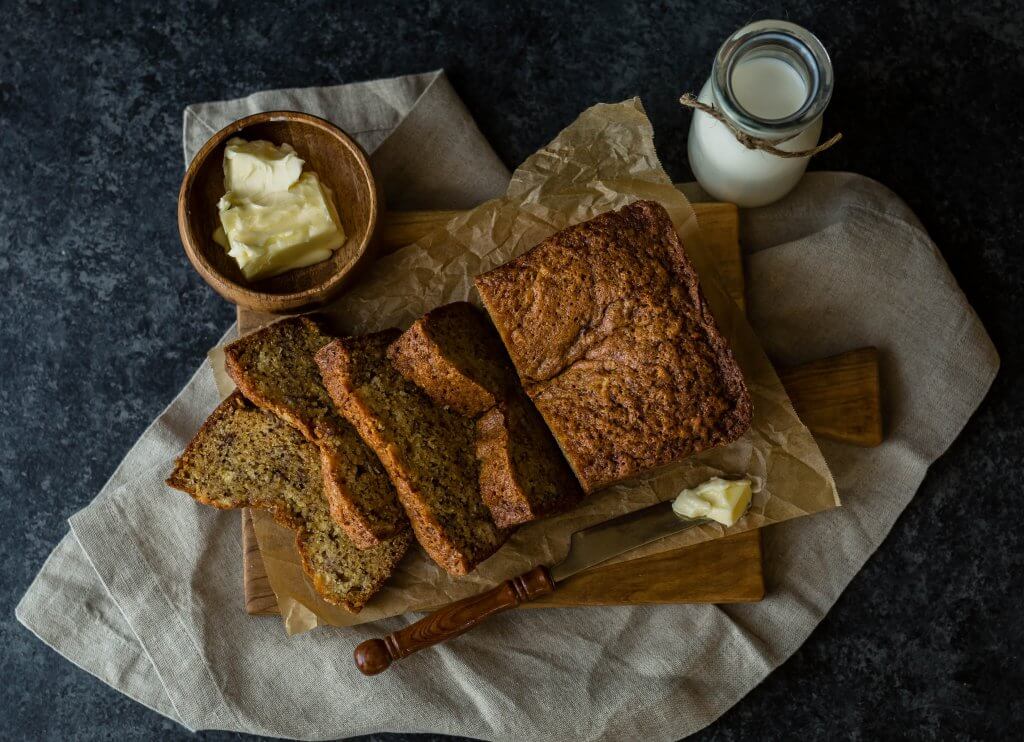
While it’s true that fat is very high in calories and need to be consumed in smaller portions to avoid weight gain, a small amount of fats still has a place on your plate. Healthy fats as you can find in butter, avocado, coconut oil and nuts will keep you feeling fuller for longer and stop you craving fast fixes like sugary treats throughout the day.
4. Alcohol
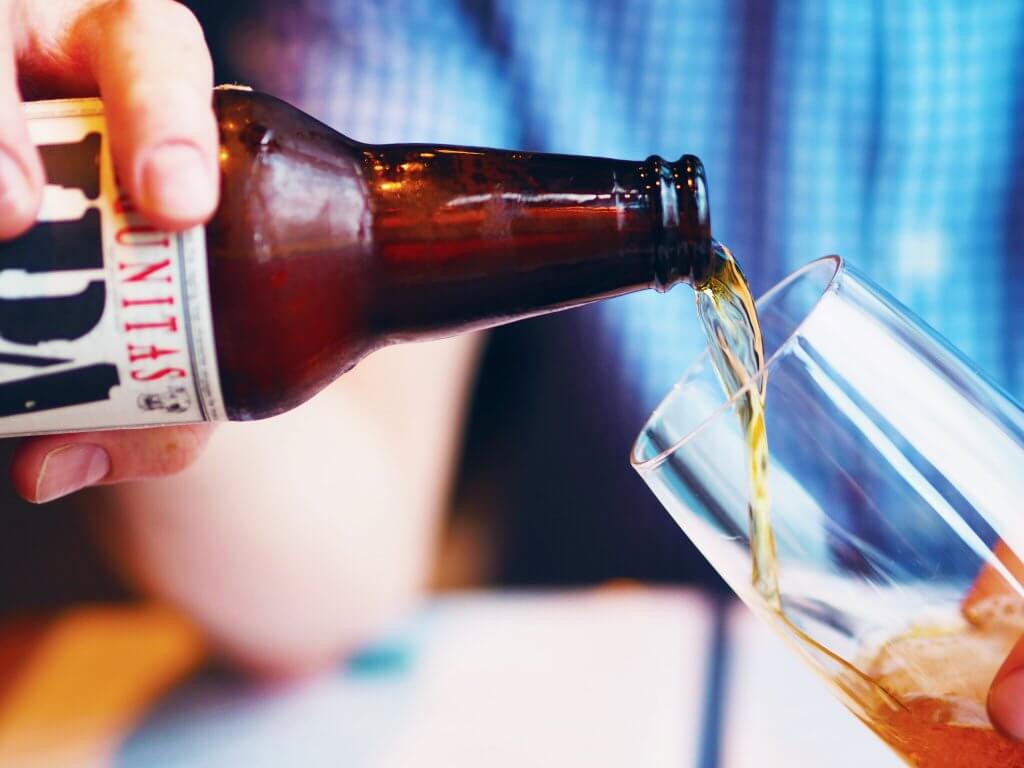
We shouldn’t forget that drinking enough is a key part of feeling full. But we’re talking about water of course, not alcohol! Alcoholic drinks have diuretic properties, are dehydrating, suppress fat oxidation and make your body more susceptible to injury when exercising. Alcohol is a big no go.
There are plenty of non-alcoholic substitutes on the market so why not give those a go instead.
Check out our Hard as Nails podcast:
If you liked this, take a look at this:





